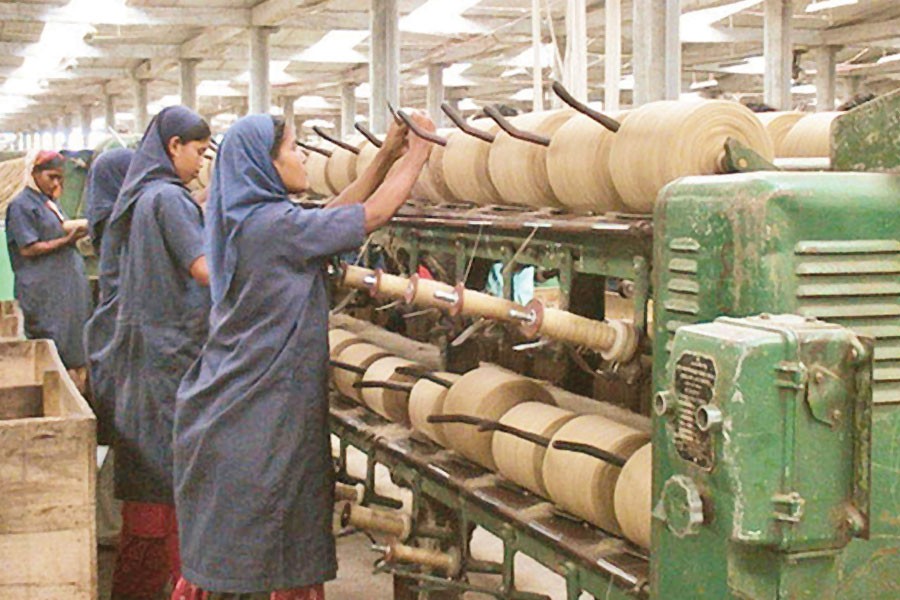Export earnings from jute and jute goods declined by 26 per cent in the first half of the current fiscal year (July-December 2018) compared to the corresponding period of last fiscal year (FY).
The sector insiders said lower demand for jute and jute products in the global market was mainly responsible for the sluggish trend.
The country's third largest export earner involves around 10 million people at different stages from production to export while the farmers grow 1.44 million tonnes of raw jute annually.
The country exported jute and jute products worth $ 421 million in July-December period of the FY'19 which was $574 million in the first half of the last FY, according to the latest figures of Export Promotion Bureau (EPB).
Shipments of jute yarn, the key export earner, dropped to just $ 256 million in the first half of the current FY which was $360 million in the same period of FY'18. Jute sacks and bags export also witnessed a 40 per cent plunge.
Around 1.2 million tonnes of jute and jute products worth US$ 1.02 billion were exported in the last fiscal year.
Shahidul Karim, secretary of Bangladesh Jute Spinners Association (BJSA), said the demand for jute yarn witnessed a decline amid global economic slowdown.
He said the country exports 0.6 million tonnes of jute yarn annually, of which Turkey imports nearly 40 per cent for its carpet industry. He said Turkey holds the major share of global carpet markets worth $ 5.0 billion.
Saudi Arabia and USA were the key buyers of Turkish carpets who have minimised their import from the country in the recent years.
Following economic slowdown in Europe, other major importers of Bangladeshi jute yarn like Iran and China, have also reduced their orders. The two countries imports Bangladeshi yarn for making carpets targeting the western markets, he said.
Md Shahjahan, deputy managing director of Shamsher Jute Mills Ltd, told the FE that the Indian anti-dumping duty imposed on a number of Bangladeshi jute products was also responsible for the export down trend.
He said the country imposed anti-dumping duties ranging from $ 20 to $ 360 per tonne on different jute products since January 2017.
"The government's target to fetch $ 1.85 billion from the sector would be difficult to achieve this FY amid the dull business," said Mr. Shahjahan, also chairman of BJSA.
Abdul Barik Khan, secretary general of Bangladesh Jute Mills Association (BJMA), said the government should impose higher duty on raw jute export due to a fall in domestic production. He said the country's jute mills were struggling hard to get quality jute this year.
He urged the government to convince India through diplomatic channel for removing the anti-dumping duty.


